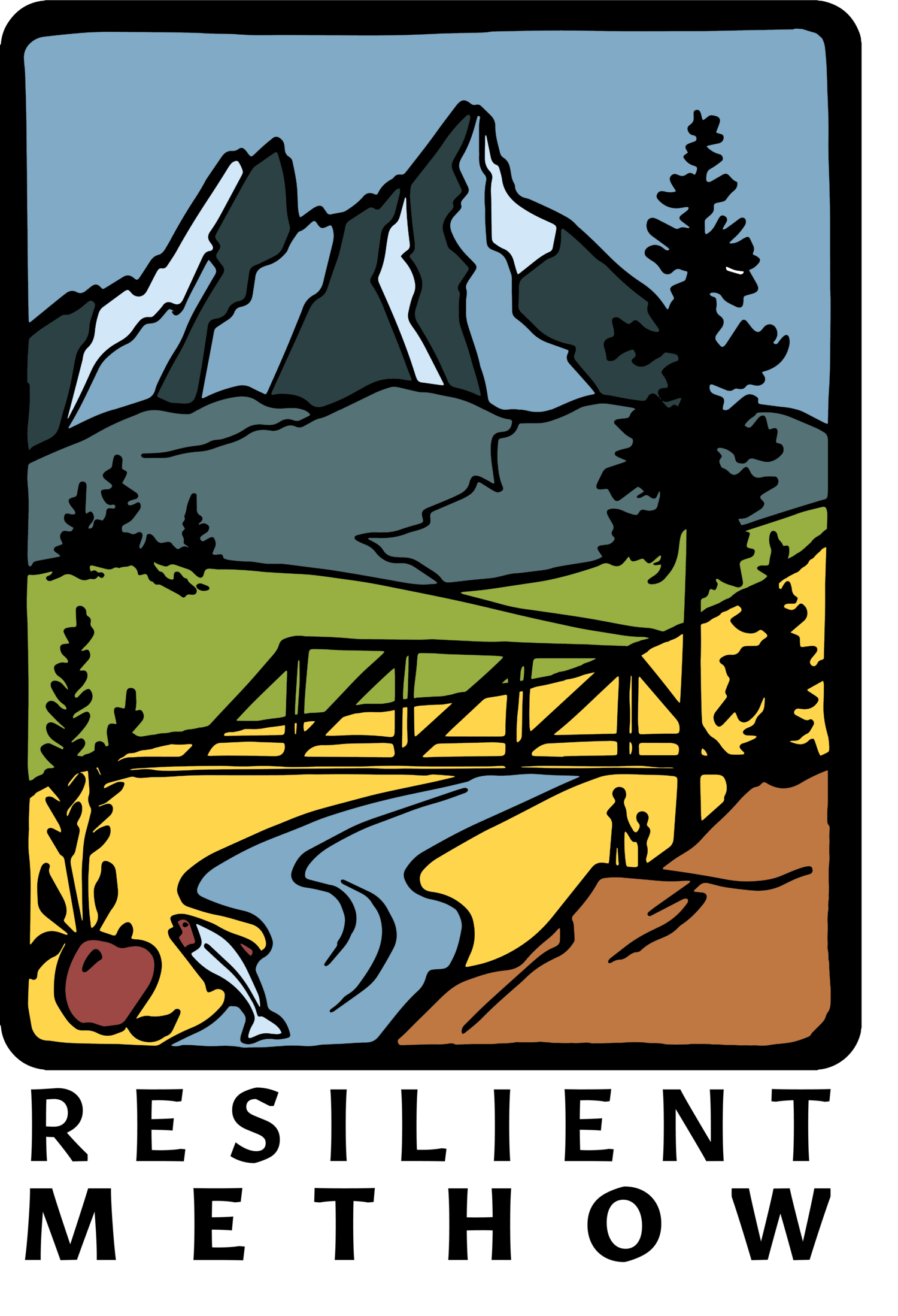Climate Action Plan Task Force
The Climate Action Plan for the Methow Watershed was developed over two years by a Climate Task Force representing a wide range of interests and expertise. The following organizations and agencies make up the Task Force and its sector subcommittees.
Clean Air Methow, The Mazama Store, Methow Conservancy. Methow Cycle and Sport, Methow Recycle, Methow Trails, Methow Valley Citizens Council, Methow Valley School District, Methow Watershed Council, Okanogan Conservation District, Okanogan County Fire District 6, Okanogan Long Term Recovery Group, Okanogan Transit, Room One, The Cove, Town of Pateros, Town of Twisp, Town of Winthrop, TwispWorks, VIP Insurance, Washington Department of Agriculture
With assistance from advisors from the following organizations: Aero Methow, Bluebird Grains, BCS Livestock, Confluence Health, Colville Confederated Tribes Environmental Trust Program, Department of Ecology, Department of Natural Resources, Environmental Protection Agency, Evergreen Mountain Bike Alliance, Federal Emergency Management Agency, Family Health Centers, Methow Ready, Methow Valley Interpretive Center, Moccasin Lake Ranch, Okanogan County Electric Co-op, Ruby Slippers Farm, United States Forest Service, University of Washington, Washington Department of Fish and Wildlife, Washington State Insurance Commissioner’s Office, Willowbrook Farm.
Resilient Methow Implementation Hub
The Methow Valley Climate Action Plan (CAP) was drafted by a task force of community members and finalized in 2021. The collaborative effort formed into Resilient Methow, a community driven initiative currently being sponsored as a project of Methow Valley Citizens Council as the coalition is established. Resilient Methow is multi-solving for equity and climate solutions and for the well-being of future generations in the Methow Valley.
The CAP Implementation Hub (Implementation Hub) is a smaller group of task force members and community volunteers working together to support the successful implementation of the CAP as part of Resilient Methow. Community stakeholders - including community members, local governments, non-profits, agencies, and regional partners - are encouraged to engage in individual and collective climate actions outlined in the CAP. The Implementation Hub will serve as a coordinating resource for stakeholders taking action. The purpose of the Implementation Hub is to support and coordinate stakeholder efforts while inspiring a broader sense of momentum, pride, and sustained engagement in the Methow Valley Climate Action Plan.
The Implementation Hub has five Focus Areas. Each focus area is led by a volunteer who serves as the point of contact for stakeholders requesting support.
If you are interested in receiving support from the Hub for a Climate Action Project, please email info@resilientmethow.org to get started. Below is more information about each of the hub areas and the support they can provide:
Evaluation & Metrics: Support stakeholder initiation of climate action projects by helping teams set clear goals, connect their actions to the greater Climate Action Plan, collect data, and evaluate performance of actions. This will allow for evaluation of the effectiveness of individual actions in support of the overall Climate Action Plan and inform course corrections over time.
Engagement and Communication: Promote opportunities for engaging in individual and collective climate action through community outreach and Resilient Methow educational forums. Share early successes and convey progress on the Climate Plan to the Methow community. Build a drumbeat of enthusiasm for effective climate action. (Dana)
Legislation and Advocacy: Provide current information on relevant state and federal legislation to key stakeholders. Work with local townships to enact climate related legislation; share grants and clean energy job opportunities. Amplify the voice of the community in critical policy decisions. (Tom)
Networking and Partnerships: Increase the base of participants and organizations engaging in implementing the CAP recommended actions, and/or amplify messaging so that mitigation and adaptation occur; create clear communication throughout the partnership network to encourage participation and knowledge sharing.(Sarah)
Visual Tools: Act as a resource to support visual continuity and hierarchy for RM website, Action project / partner materials, and Implementation Hub materials. Ensure materials produced by IT and AT are clearly connected to the visual language of the CAP.

